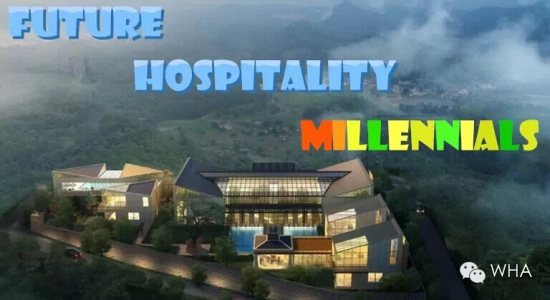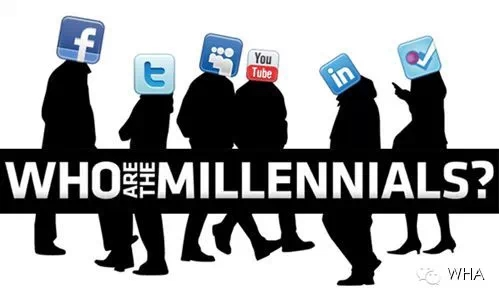
預計到2020年,萬豪國際酒店集團公司將已完成對Airbnb的收購;希爾頓全球控股有限公司將已偏向重資產發展,到時千禧一代將會要求酒店在臥室里重新配備櫥柜。

下面我們就來討論討論千禧一代吧。所謂千禧一代即為那些年齡小于35歲的人們。如今千禧一代已經成為酒店行業發展最迅猛的顧客群。千禧一代愿意在探索、互動和體驗上花更多的代價。大多數的千禧一代們都在尋求一種全方位的美食體驗,并希望價格合理,酒店業者對于這一現象已經在大堂設計上做出新的改變。
他們在尋找一種獨特新穎的體驗,這種需求已經對酒店市場提出了新的要求,是時候做出改變了。而且,這群客戶總喜歡依靠現代科技的力量做些大多數人力所能及的事:比如說酒店登記入住,飯店結賬,尋找就餐、購物和玩耍地點等。除了借助這些科技手段外,千禧一代對于發表自己的意見也是很有一套的,如果他們的要求得不到滿足,他們會用推特、臉書、Yelp或到到網(TripAdvisor)四處抱怨。
據全球最大的旅游營銷公司之一MMGY報道:去年,有59%的千禧一代曾入住單體飯店,比“嬰兒潮”一代(在美國,“嬰兒潮”一代是指二戰結束后,1946年初至1964年底出生的人)的入住率高了20%,同時是70歲及以上的老年群體入住率的兩倍。
千禧一代是很具代表性的一代,如今他們占據美國游客數的32%,而到2025年時,他們可能會占所有游客數的50%,甚至更多。

By the year 2020, Marriott International will have acquired Airbnb; Hilton Worldwide Holdings will have embarked on a new strategy to go asset heavy; and millennials will demand closets be added back to hotel rooms.
Let’s talk about millennials, a.k.a. people under the age of 35. Millennials have become the fastest growing customer segment within the hospitality industry. Exploration, interaction and experience are the major focus of Millennials who are willing to pay more for a greater experience. Many of them are looking for an overall gourmet experience for a reasonable price and this has produced all new lobby designs in the hotel sector.
They are looking for a unique and novel experience and this has and will continue to command change within the market. Moreover, this customer segment is interested in utilizing technology to do things that many others have become accustomed to doing manually: checking in at hotels, paying their restaurant and bar bills and looking up places to eat, shop and play to name a few. In addition to wanting technology, Millennials have no problems speaking up. If what they are seeking is not handled to their liking, they will turn to Twitter, Facebook, Yelp or TripAdvisor to voice their complaints.
According to MMGY, 59 percent of Millennials stayed at independent hotels last year, 20 percent more than boomers and double those 70 and over.
The Millennials currently represent 32 percent of all US travelers and by 2025 will represent over 50 percent of all travelers.
